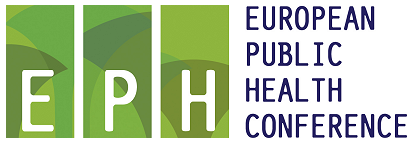Live Discussion

David Smith, Director of the International Network for Health Workforce Education, is attending the European Public Health Conference Pre-Conference Workshop on "Health Workforce Governance in Europe: Toward a Future Research Agenda" on Wednesday 9th & Thursday 10th November 2016. The Pre-Conference will present latest research in health workforce governance including a wide range of topics, data and policy measures at EU, national and local levels. We'll be running a Live Discussion using our fantastic new Discussion Forum platform so that our members can interact with the Pre-Conference virtually buy asking questions and discussing topics in detail themselves. Comments and discussions can be fed back to Pre-Conference presenters, asked as questions during the questions and answer sessions or fed in to the group discussions taking place throughout the two days. You can view the programme for the two days here: Pre-Conference Agenda and get in touch by replying to this forum thread.


We start in a little over an hour. You can read about the Pre-Conference background, overview and aims, and policy relevance below:
Background: The health workforce is central to the quality of service provision and overall health system performance. Across Europe, the increasing rates of chronic conditions and multi-morbidity, changes to service delivery structures, and provider shortages in certain specialities and regions or maldistribution have triggered changes to the composition of health workforces. A range of policy and governance options exist, yet, it is not always evident what works in what contexts and why. Moreover, the EU single market impacts directly on the tools of governance options that countries have at hand. It creates new forms of mobile health workers who are challenging country-based health workforce planning, education and governing models.
Overview and aims of the pre-conference: The pre-conference is organized by the EUPHA Health Services Research Working Group ‘Health Workforce Research’ and the European Observatory on Health Systems and Policies, in close collaboration with the OECD, and the WHO Regional Office for Europe. The sessions will present latest research in health workforce governance in Europe including a wide range of topics, data and policy measures at EU, national and local levels. The aims are to exchange knowledge, promote critical debate and identify gaps in research. On day 2, sessions connect research and policy issues to develop a proposal for an EU-wide future research agenda.
Policy relevance: The pre-conference comes at a time where strengthening health workforce governance as a core function of any health system has gained political momentum. The event will discuss governance options for Europe in light of recent policy developments, including the global WHO Strategy on Human Resources for Health by 2030, the High-Level Commission on Health Employment and Economic Growth, policy strategies of the European Commission and of the OECD, as well as new research evidence from large EU-comparative projects and national data.
Session one opening now looking at Policy, Governance and Organization: Improving the Performance of the Health Workforces. Hans Kluge from WHO Regional Office for Europe is currently discussing the WHO global strategy on Human Resources for Health by 2030.
General Session Discription:
Session I opens the debate on health workforce governance by taking a global view and introducing high-level policy recommendations for improving workforce performance. Four core areas of contemporary health workforce change are then examined through a European lens. Developments include demand for new skills in chronic care provision, for organizational change in primary healthcare, and for comprehensive governance changes in care work through the shifting of tasks from doctors to nurses and through the training of healthcare assistants. The session will promote critical debate to improve performance at the European, national and operational (organization, coordination, education, etc) levels of governance.
Hans Kluge is now talking about the “Working for Health and Growth: Investing in the Health Workforce” Report. You can read our Policy Brief on this report in full here. The Policy Brief focuses on three of the ten recommendations within the report that are relevant for health workforce educators.
Caroline Hager from DG SANTE is talking delegates through the EU's approach on health workforce policy
EU Commission focuses on 4 key areas for health workforce:
More info here: http://ec.europa.eu/health/workforce/policy/index_en.htm
We now have some "rapid communications" on the session topic:
TaskShift2Nurses Project (presentation number 2 above) paper here: http://bmjopen.bmj.com/content/6/9/e011901.full
CC4HCA Project (presentation number 3) for more info visit: https://www.nivel.nl/en/cc4hca
Session two starting now with a presentation from Gaetan Lafortune from the OECD on "health labour markets and developments in the healthcare workforce". A discription of the session can be found below:
"Health labour markets and professional development: monitoring and motivating changing health workforces"
Session II explores how to monitor, motivate and sustain health workforces. Developments in the labour markets and the health professions are brought together to understand the specific conditions of managing human resources. Major topics include developments in the health workforce, changes in the composition, incentives and outcomes of skill mixes, recruitment and retention and the role work conditions play in this context. The session will discuss options for improving monitoring systems and governance to target health labour markets and professional development and help to respond to maldistribution and shortages.
We now have some "rapid communications" on the session topic:
MUNROS Project (presentation number 2) for more info: https://www.abdn.ac.uk/munros/
R & R Project (presentation number 3) can be viewed here: http://ec.europa.eu/health/workforce/key_documents/recruitment_retention/index_en.htm
This session, titled: "health workforce mobility: improving collaboration and equity" and is facilitated by Claudia B. Maier. We open with a keynote speech from Irene A. Glinos (European Observatory on Health Systems and Policies) on "strengthening cross-country collaboration to make health professional mobility work better".
A discription of the session can be found below:
Session III looks at country experiences and implications of changing mobility patterns across Europe. With growing awareness of the role health professional mobility can play in capacity planning, service delivery and education pipelines, the presenters will explore how countries can collaborate in a context of health workforce flows, how mobility affects health systems, what policy responses countries employ, and whether there is scope for contextual learning. The discussion will help to clarify how Europe can respond to the challenges of unequal mobility and distribution of health workers within the EU and globally.
Rapid communications:
Thats the end of day one. Join us tomorrow as we'll use break-out sessions to discuss developing a research agenda for health workforce issues